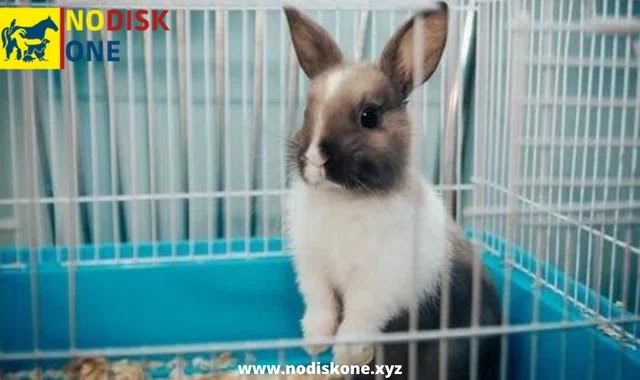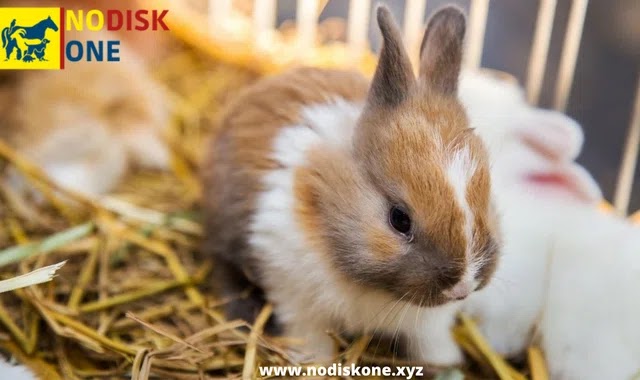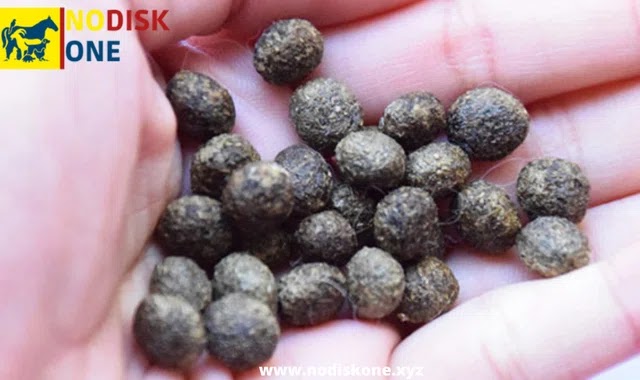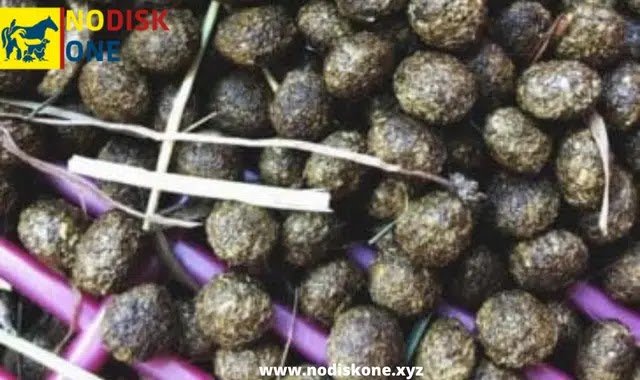Many people enjoy keeping rabbits as pets because they are kind and sociable creatures. They have delicate bodies and are easily offended by filth. However, rabbits can also be messy, so keeping your rabbit's cage clean is crucial for both your personal environment and their well-being.
 |
| Rabbit Cage: Safe And Effective Systems To Clean A Rabbit Cage |
Over time, your rabbit's cage gets dirty just by being inhabited. Accidents can also happen, which makes the cage even faster. It's important to know how to clean your rabbit's cage so you can keep your rabbit happy and healthy.
You should thoroughly clean your rabbit's enclosure about every other week on average. Depending on your rabbit's hygiene and the kind of enclosure you use, the frequency will change. To prevent an odor buildup, specific tasks like cleaning the litter box should be completed daily.
This is an informative article. Nodisk One is not permitted to make a diagnosis or recommend any form of veterinary care. If your pet is in pain or ill, we recommend that you take him to the vet.
How Often Should I Clean A Rabbit Cage?
Rabbit cages require almost constant maintenance. Larger cages require more care than smaller ones, and different areas of the habitat will require care at different times. You should at least pick up and maintain the cage daily, while other tasks can be done weekly, monthly, or as needed. Used toys, chewing debris (such as bedding, plastic, or wood), spoiled food, and any trash outside the litter box should be cleaned up as you see it.
These are the most pressing issues you need to fix, and they usually don't have to wait for your next regular cleaning. If you notice blood in your rabbit's cage, you should first check it for injury before cleaning it, as your rabbit could be seriously injured.
What Parts Of A Rabbit Cage Should I Clean Daily?
Maintaining the cleanliness and order of your rabbit's habitat on a daily basis is crucial. If you don't scavenge every day, you run the risk of your rabbit getting sick and making things harder for yourself when you finally get down to housework.
 |
| What Parts Of A Rabbit Cage Should I Clean Daily? |
The most important things to keep fresh each day are your rabbit's food and bedding. You should always remove old, uneaten hay from your rabbit's food dish to prevent him from getting sick from dusty hay. You should also clean the water bottle or bowl and fill it with fresh water. It's important not to just replace the water, but also to make sure the bottle is cleaned of any dust or debris.
You should also clean your rabbit's litter box daily and check for messes outside the box. You should remove the feces or used bedding and replace the hay as you do with your rabbit's food dish. The litter box will be the main source of any odor coming from your rabbit's cage, so it's important to keep it very clean.
What Parts Of A Rabbit Cage Should I Clean Weekly?
Some parts of your rabbit's cage may need to be cleaned less often, but weekly cleaning will generally be more intensive and thorough than your daily cleanings. You should clean the entire cage and everything in it once a week, and more frequently if your rabbit gets sick, isn't neutered, or has trouble using the litter box. Important things to clean bare floors and bedding, as well as areas like the floor or your rabbit's favorite spot.
Because rabbits often chew their toys, it's best to clean them only with dish soap and water. Be sure to rinse them completely before putting them back in the cage. It might be necessary to scrub to remove saliva, dirt, or grime. Paper or cardboard toys do not need to be washed but should be replaced regularly.
 |
| What Parts Of A Rabbit Cage Should I Clean Weekly? |
You will need to wash your rabbit's cloth bedding weekly and replace any paper bedding as well. It's a good idea to keep more than one bedding set on hand to help with this process and in case of emergencies. Bedding can usually be washed in the washing machine.
You should wipe down wherever your rabbit has gone to get rid of any hair, dust, or trash particles. It's a good idea to clean the entire floor, but you should definitely clean anywhere your rabbit spends a lot of time. You may additionally select to wipe down the edges of the cage, in particular in case your rabbit has been sick.
Can I Clean A Rabbit Cage With Bleach?
Yes, you could clean a rabbit cage with very small quantities of very diluted bleach so long as you rinse them thoroughly. Bleach is a good tool for getting rid of bacteria that trash and other sources can carry, and if you have a cage made out of NIC panels or any other type of cage that comes apart, you can soak them in the bleach solution to clean the assembly. cage.
 |
| Can I Clean A Rabbit Cage With Bleach? |
You should only use a ratio of 1 to 10 when preparing your bleach solution and you should not add any other chemicals. Let the cage parts soak for about 30 minutes, then rinse them completely and dry them. You may choose to rinse them more than once if your rabbit tends to chew the floor or the bars of his cage.
You should not use bleach or other disinfectants on wooden toys or parts of the cage, as untreated wood will absorb the chemicals. Treated wooden isn't safe for rabbits, so all wooden elements and toys must be untreated. Disinfectants other than diluted bleach should be avoided due to the variety of chemicals they contain that can harm your rabbit.
What To Clean A Rabbit Cage With?
Your best option for cleaning a rabbit house is hot water and vinegar. The vinegar will remove calcium deposits left behind by rabbit urine and the hot water will remove most dirt and dust or grime from the cage. You can use this solution on anything in the cage, including toys and litter boxes.
Mix one part vinegar with one part water and use it anywhere in the cage. This solution works best because it won't harm your rabbit and it's generally odorless, which will keep your rabbit from getting disoriented when you put it back in the cage.
Do not use disinfectants such as Clorox or Lysol to clean the cage or any other object your rabbit comes into contact with. These contain many chemicals that are dangerous to your rabbit due to both the fumes and the risk of ingestion. Stick to a very dilute bleach solution or the suggested vinegar and water solution to keep your rabbit safe.
Should I Clean The Cage Of A Rabbit That Has Young In It?
If the babies are just born and the cage is reasonably clean, avoid cleaning the cage for a few days. When it's time to clean up, gently remove the mother, but don't move or remove the babies or the nest. Clean around the nest using only lukewarm, chemical-free water.
 |
| Should I Clean The Cage Of A Rabbit That Has Young In It? |
Baby rabbits are incredibly sensitive and could suffocate if chemical fumes enter the cage. Do not handle the babies or change the bedding so that the mother is more comfortable coming back to the nest and caring for them. When you're done, put the mother back in place and watch carefully to make sure she returns to the babies at her usual time.
Should I Take My Rabbit Out Of Its Cage During Cleaning?
Yes, it's a good idea to completely remove your rabbit from the room while you clean his cage. It's helpful to have a clear space without your rabbit underfoot, and it's easier to be able to put spray bottles down or leave the cage door open without worrying about what your rabbit is doing. If you have a second enclosure, you can put your rabbit there or let it roam free while someone else watches it and you clean up.
It is especially good to remove territorial rabbits or rabbits that have not been spayed or neutered, as they may become aggressive or upset if they are in or near the cage when you start cleaning. It's best to put your rabbit completely out of sight of the cage in this situation. When the cleaning is complete, simply put your rabbit back in the cage.
Can I Clean A Rabbit Cage With Essential Oils?
You should never use herbal or essential oils to clean a rabbit's cage. Although some herbal oils such as mint or basil may not be harmful to a rabbit in very small amounts, it is not safe to use them for cleaning. The very high concentrations of chemicals in essential oils can be harmful to rabbits if swallowed or inhaled the vapors. Some particularly bad oils include:
- tea tree oil
- Clove oil
- wintergreen oil
- Anise oil
Don't mix essential oils in your cleaning products or spill them around the cage to try to make it smell better. It will also ruin your rabbit's comfort level in the cage, as rabbits derive their comfort from smells. If the cage stops smelling like them or smells something that makes them uncomfortable, they will become unhappy and even sick. It is best to use unscented materials when cleaning a rabbit cage.
How To Improve The Odor In A Rabbit Cage?
Rabbits don't have a strong odor unless they're sick or particularly dirty, so the best way to keep your rabbit's cage from smelling bad is to keep it clean! It's not a good idea to use air fresheners or chemicals to spray the cage and give it a certain odor, but simply by cleaning regularly and making sure your rabbit is healthy, you can keep most odors at bay. Hay will still have an odor, but it doesn't have to be bad and it's very mild so it takes some getting used to.
 |
| How To Improve The Odor In A Rabbit Cage? |
The main area to deal with is the litter box, as rabbit urine has a slight odor. If your rabbit's feces smell bad, it's a sign of health issues and you should see a veterinarian. Don't let urine build up and scoop out the litter box at least once a day and clean it thoroughly once every few days. This should significantly reduce the smell.
You should also regularly clean bedding and replace any paper bedding, especially if you notice it starting to smell bad. You can get away with replacing paper bedding only about once a week and washing fabric bedding just as often. However, if you notice odor buildup more frequently than this, you will need to adjust your cleaning schedule.
What If I Don't Clean My Rabbit's Cage?
The least serious consequence of not cleaning your rabbit's cage is that you will definitely create a bad smell in your home. Although clean rabbits and sound droppings are odorless, urine buildup and odor buildup from the scent glands can cause odor over time.
A dirty cage can also breed all kinds of bacteria and make your rabbit seriously ill. Dusty or dirty hay can give your rabbit digestive problems if eaten and respiratory problems such as infections if inhaled, and spoiled food can cause diarrhea.
If your rabbit's litter box is dirty with waste or discharge from its scent glands, the litter box can become a breeding ground for maggots and even lead to fly attacks, a condition in which flies lay eggs on the rabbit. and the maggots burrow into his skin. It is important to be proactive and to clean well.
Cleaning Advice For A Rabbit Cage
- In rabbit urine, calcium salts frequently precipitate and create a sticky, hard substance that adheres to cages and litter boxes. Keep vinegar in a spray bottle so that you can quickly clean litter pans and disinfect dirty areas of the cage because vinegar dissolves these calcium salts3. Simply soak the more difficult deposits in your litter box in vinegar for 10 to 20 minutes.
- To make cage cleaning simpler, choose absorbent bedding. To make this easier for yourself, buy two sets of blankets or bedding for each rabbit cage.
- Choose a large cage that is simple to clean. Surfaces made of exposed wood absorb messes like urine and are difficult to clean.
- The incidence of territorial marking and spraying is decreased by spaying or neutering your rabbit, which keeps the cage cleaner.
Related Questions
How do you clean a rabbit's litter box?
You should pick up the droppings and use the litter box daily. To thoroughly clean the litter box, remove all litter and hay and spray the box with warm water and vinegar to remove any buildup.
When a rabbit dies, should I clean its cage?
Yes, especially if you plan to put another animal in this cage. Be sure to remove the body quickly, then clean all cage surfaces if your rabbit may be sick.
Should I wash my rabbit?
No. Rabbits should not be immersed in water or wet. Instead, gently brush their fur. If your rabbit gets dirty, wipe away any debris with a damp cloth.
In Conclusion: Rabbit Waste Disposal
Generally, you will need to dispose of your rabbit's waste along with the rest of your waste, by sending it to a landfill. Some people will try to flush it down the toilet, but I don't recommend it as it may clog the drains. Instead, use the type of garbage bag that does not tear easily.
 |
| Rabbit Poop |
Put your rabbit's waste and dirty litter in a plastic bag, then throw the bag in the trash. I have a small lidded bin that I use to try to use less plastic in my rabbit care routine. I can fill it with the lid to prevent the smell from spreading. I will go through a plastic bag every week instead of every day.
 |
| Rabbit Small Poop |
If you have your own garden or compost heap, you may also choose to use leftover rabbit litter as fertilizer. Rabbit droppings do not carry diseases like cat or dog poo. It is a safe and nutrient-dense fertilizer to use in a garden. You can either sprinkle the poop directly on the ground or add it to your own compost bin.
However, most commercial composting companies will not accept any type of animal waste due to the potential for spreading disease from many other animals. Only if you have your own garden at home, This is an extra option.
Only credible sources, such as peer-reviewed studies, are used by Nodisk One to substantiate the information in our articles.

Comments